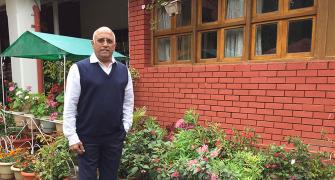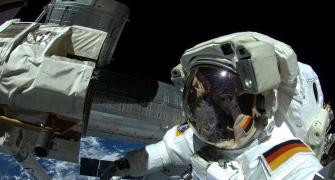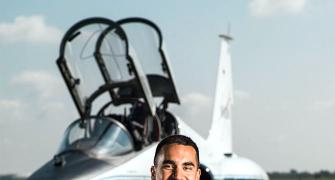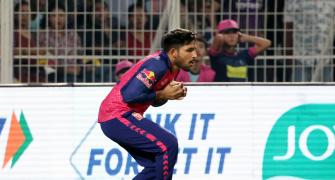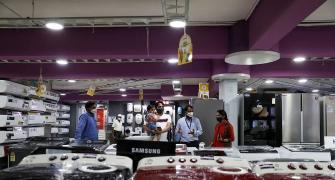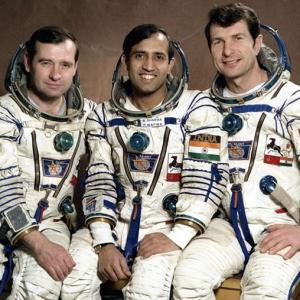ISRO has to select astronauts, training them to withstand the space environment, and then bring them back to earth and rehabilitate them.
Peerzada Abrar reports.
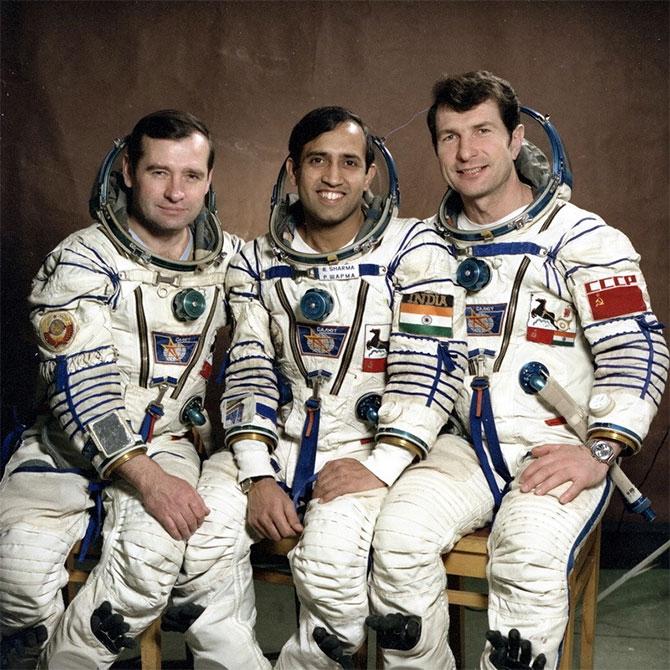
The cosmonauts were launched from the Baikonur Cosmodrome in present day Kazakhstan in a Soviet rocket Soyuz T-11. Photograph: Kind courtesy Spacefacts.de
The Indian Space Research Organisation is setting up a Human Space Flight Centre in Bengaluru, which will support its quest of making the country's maiden manned space mission a success.
"This centre will help in carrying out the job related to all the human space programmes," said ISRO Chairman K Sivan.
Gaganyaan, an Indian crewed orbital spacecraft, is intended to be the foundation of the Indian Human Spaceflight Programme.
On its maiden mission, it will send three astronauts to orbit the earth at an altitude of 400 km, for up to seven days.
Gaganyaan is a Rs 10,000 crore (Rs 100 billion) project and the space agency has kept a target to conduct the manned mission by December 2021. It will, however, conduct two unmanned missions before that.
The Human Space Flight Centre will have senior scientist Unnikrishnan Nair as the director, while the Gaganyaan project will be headed by R Hutton at the centre.
ISRO said it has to select astronauts, training them to withstand the space environment, and then bring them back to earth and rehabilitate them.
The centre will support that. Sivan said the initial training will be done in India and advanced training outside the country, mostly in Russia.
"We want women astronauts too. In my opinion, we have to train both men and women," said Sivan.
Last November, Jean-Yves Le Gall, president of the French space agency CNES, and Sivan announced the creation of a French-Indian working group on human spaceflight. This was the follow-up of a major commitment made by French President Emmanuel Macron after his visit to India.
CNES and ISRO will combine their expertise in space medicine, astronaut health monitoring, life support, radiation protection, space debris protection and personal hygiene systems.
Engineering teams have also begun discussions and it is envisioned that infrastructure such as the CADMOS centre for the development of microgravity applications and space operations, or the MEDES space clinic, will be used for training of future Indian astronauts, as well as exchange of specialist personnel.
At a time when the country is giving rise to cutting edge technology start-ups, Sivan said ISRO is open to collaborating for space missions including Gaganyaan.
ISRO aims to achieve this through setting up six incubation centres across the country. Last September, it already opened a space technology incubation centre at Agartala. ISRO will throw up problems to young ventures to solve them.
"Once the prototype is useful for us, we will (utilise) that," said Sivan. He said the organisation is also encouraging Indian students to work on projects at ISRO.
"Why do our Indian fellows have to go to NASA? They can come here."


